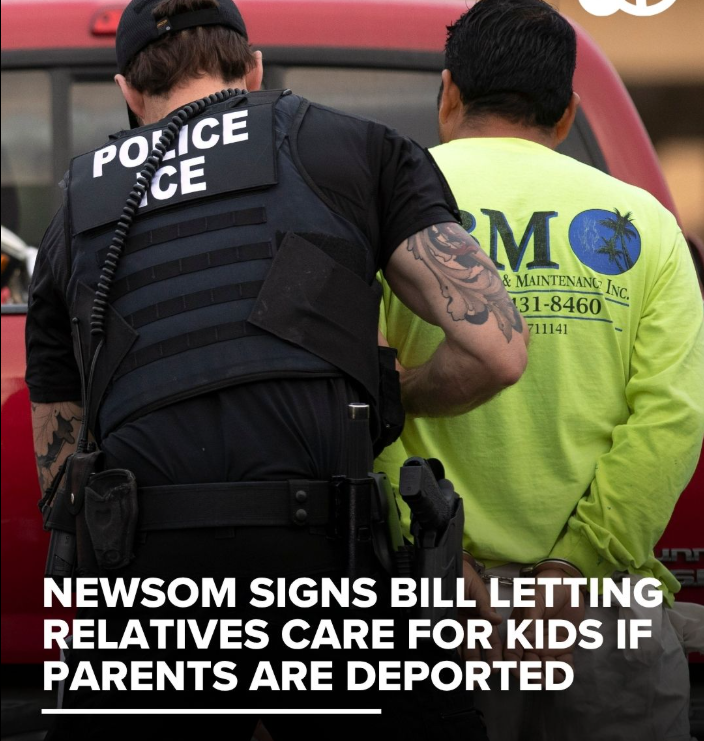On Sunday, California Governor Gavin Newsom signed Assembly Bill 495, a measure allowing a wide range of relatives to act as temporary caregivers for children if their parents are deported. The bill also prohibits daycare providers from collecting immigration information about children or their parents, and allows parents to designate a temporary legal guardian through family court.
“We are making it clear that we support families, their right to privacy, and their ability to prepare for emergencies,” Newsom said in a press release.
The law is one of several passed this year by California’s Democrat-led Legislature in response to aggressive immigration enforcement under the Trump administration. Newsom recently signed other related laws — including a ban on ICE agents wearing masks in California and a requirement for warrants at schools and hospitals.
Assembly Bill 495, however, drew significant conservative backlash. Newsom delayed his decision on the bill for weeks, prompting strong advocacy from immigrant rights groups. He signed it just one day before the deadline to act on over 800 bills sent to his desk.
What the New Law Does
The most debated part of the bill involves a little-known document called a “caregiver’s authorization affidavit.” This form allows a relative living with a child to temporarily make decisions like enrolling them in school or taking them to the doctor when the parents are unavailable.
The new law expands who can fill out this form — not just close relatives like grandparents or siblings, but also extended family such as cousins, great-aunts, or anyone related by blood, adoption, or affinity within five degrees of kinship. Importantly, this does not give custody and parents can revoke the designation at any time.
Supporters argue that immigrant parents at risk of deportation deserve the right to choose a trusted adult to care for their children. Many immigrant families don’t have close relatives in the U.S., but they often rely on extended family or community networks.
The bill was supported by immigrant advocacy groups and child welfare organizations like the Alliance for Children’s Rights and First 5 California.
“I introduced this bill so children wouldn’t have to fear what happens if their parents can’t pick them up from school,” said Assemblymember Celeste Rodriguez, who authored the bill.
Critics Raise Concerns About Child Safety
Opponents — including Republican lawmakers, religious groups, and parental rights activists — argue that the bill could endanger children by allowing people who are not close relatives to assume responsibility.
Some opponents falsely claimed that the bill would let total strangers take custody of children. Hundreds rallied at the state Capitol to protest the bill, including Pastor Jack Hibbs, who called it “the most dangerous bill we’ve seen” in Sacramento.
Assemblymember Carl DeMaio, a Republican from San Diego, called the bill “a human trafficker’s dream.”
Greg Burton of the California Family Council criticized the idea that someone could claim parental rights just by signing a form without the parents present. “What are parental rights if someone else can claim them just by signing a piece of paper?” he asked.
In response to these concerns, Rodriguez revised the bill over the summer to exclude “nonrelative extended family members,” but the changes didn’t satisfy critics. The bill ultimately passed along party lines.
Governor Newsom has often taken a more moderate stance on child custody issues. Last year, he vetoed a bill that would have required courts to consider whether a parent supports their child’s gender identity in custody cases — a move that upset some in his party.
At a recent press conference urging Newsom to sign AB 495, Angelica Salas of the Coalition for Humane Immigrant Rights asked him “not to listen to the lies” being spread about the bill.
In his press release, Newsom acknowledged the controversy and clarified that the new law does not override parental rights or legal custody decisions, which still must be handled by family court judges.
